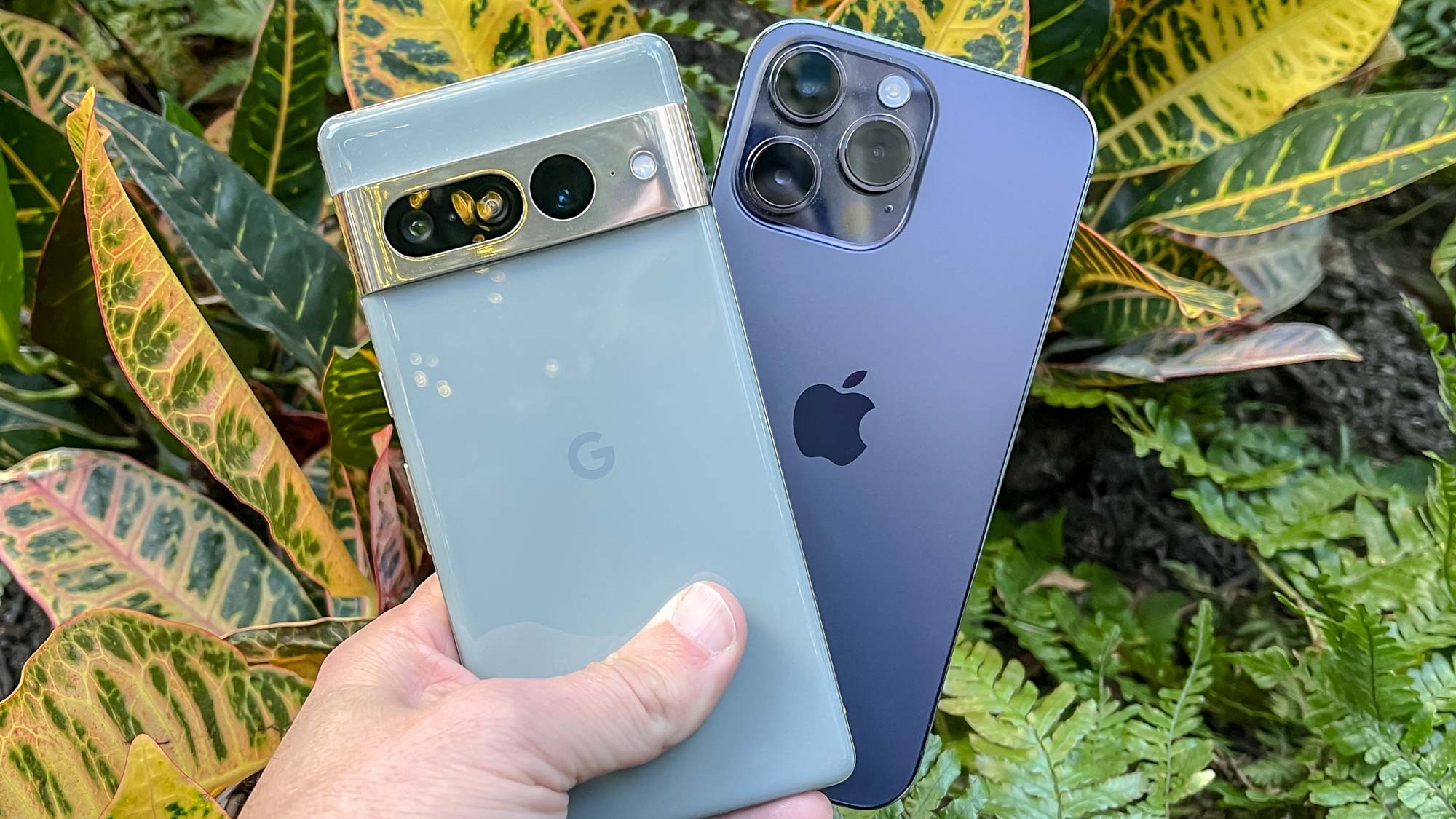
Bing with ChatGPT and Google Bard are both trying to revolutionize the search experience through the use of AI. Yes, you get results, but it's part of a conversation with a chatbot instead of just serving up links. But how effective are these AI chatbots at helping you make shopping decisions?
One of the biggest shopping decisions people have to make these days is choosing the right phone for them. Of course, we have our own best phones guide backed by our testing and reviews, but we were curious whether Bing with ChatGPT and Bard would offer solid advice. Here’s what both chatbots had to say.
Question: What phone should I buy?
Both Bard and Bing were rather non-committal when it came to recommending phones, noting that it is quite a personal decision that a simple question like this can’t really answer. Interestingly, the two took very different approaches to the advice it offered, alongside a few recommendations.
Bing asked what sort of features I wanted in a phone, so that it could narrow down the options and provide me with a better recommendation. Meanwhile, Bard noted a number of key factors, and how that can affect purchasing habits.

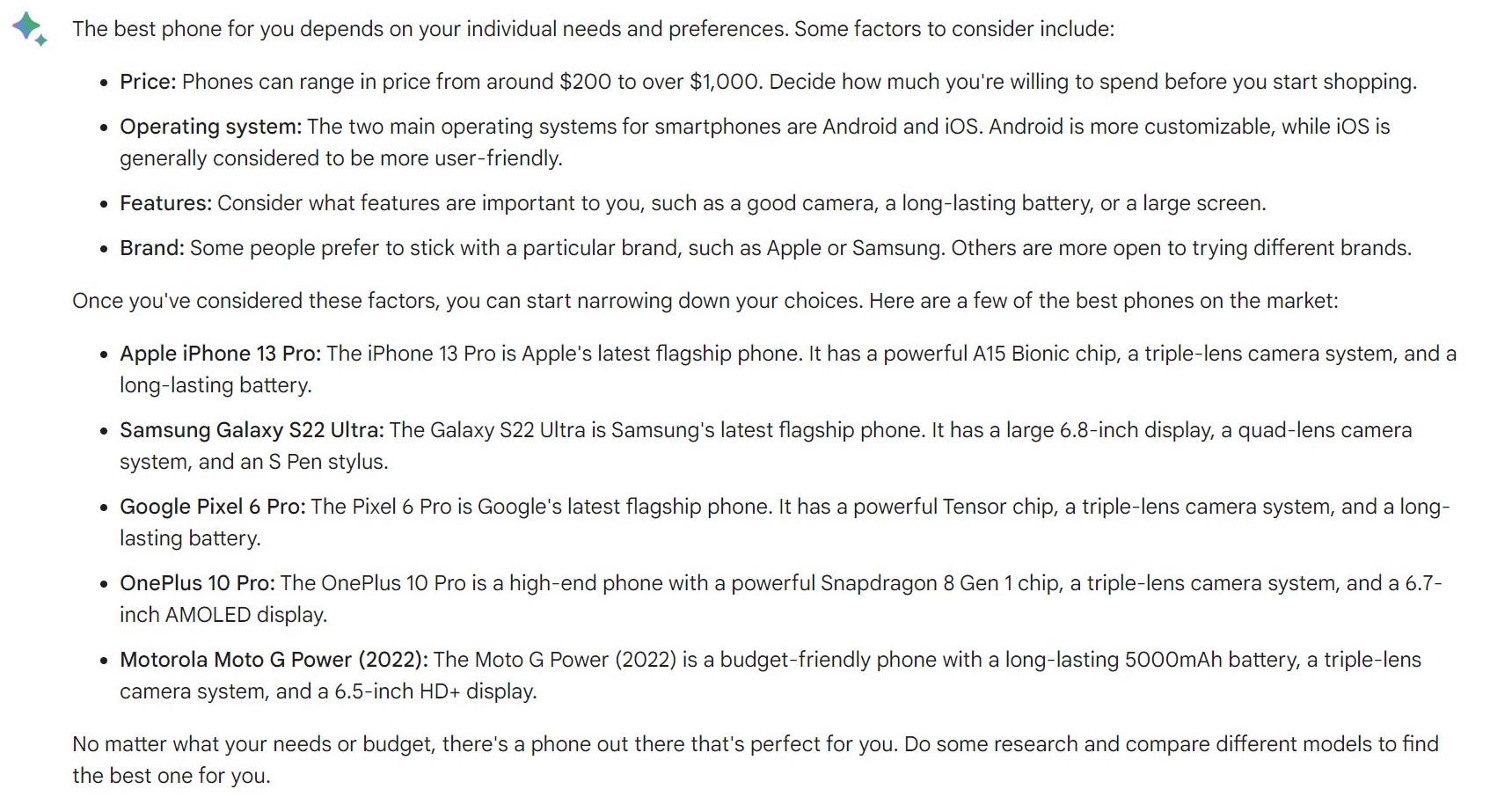
Bard also went into greater detail about what it considered the best phones on the market. Unfortunately, this is where things went south, and it looks like the AI is still living a year in the past — going so far as to refer to the iPhone 13 Pro, Samsung Galaxy S22 Ultra and Pixel 6 Pro as their company’s respective flagships.
Bing’s OnePlus 9 Pro recommendation is also rather suspect, considering the recent launch of the OnePlus 11. But at least Microsoft’s chatbot knows that the iPhone 14, Galaxy S23 and Pixel 7 are all available to purchase.
Question: What is the best smartphone?
Asking Bing and Bard what the best smartphone resulted in very similar answers. Bing added some additional explanatory information, but otherwise continued to ask for more information to ensure it could offer some more personalized recommendations. Bing also successfully navigated my accidental use of “smatphone” without embarrassing me for mistyping.
This time Bing also produced a shopping widget, offering ways to purchase the “best smartphone”. Sadly, like Bard before it, this widget seemed woefully out of date. The iPhone 14 Pro Max appears at the very left-hand side, but everything before it is rather old. Or, in the case of the Samsung Galaxy A3 (2016), super old. As capable as that device may have been in its prime, it’s pretty far from the best Android phone in 2023.
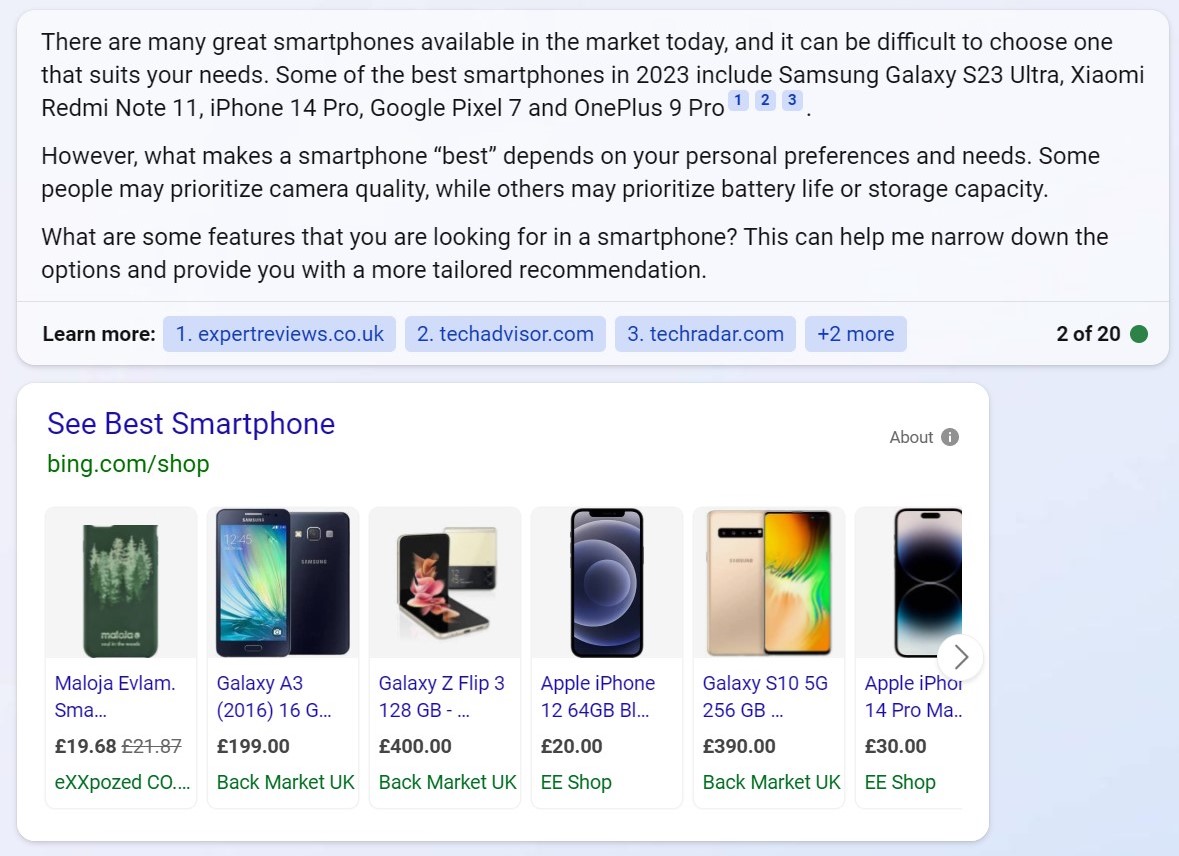
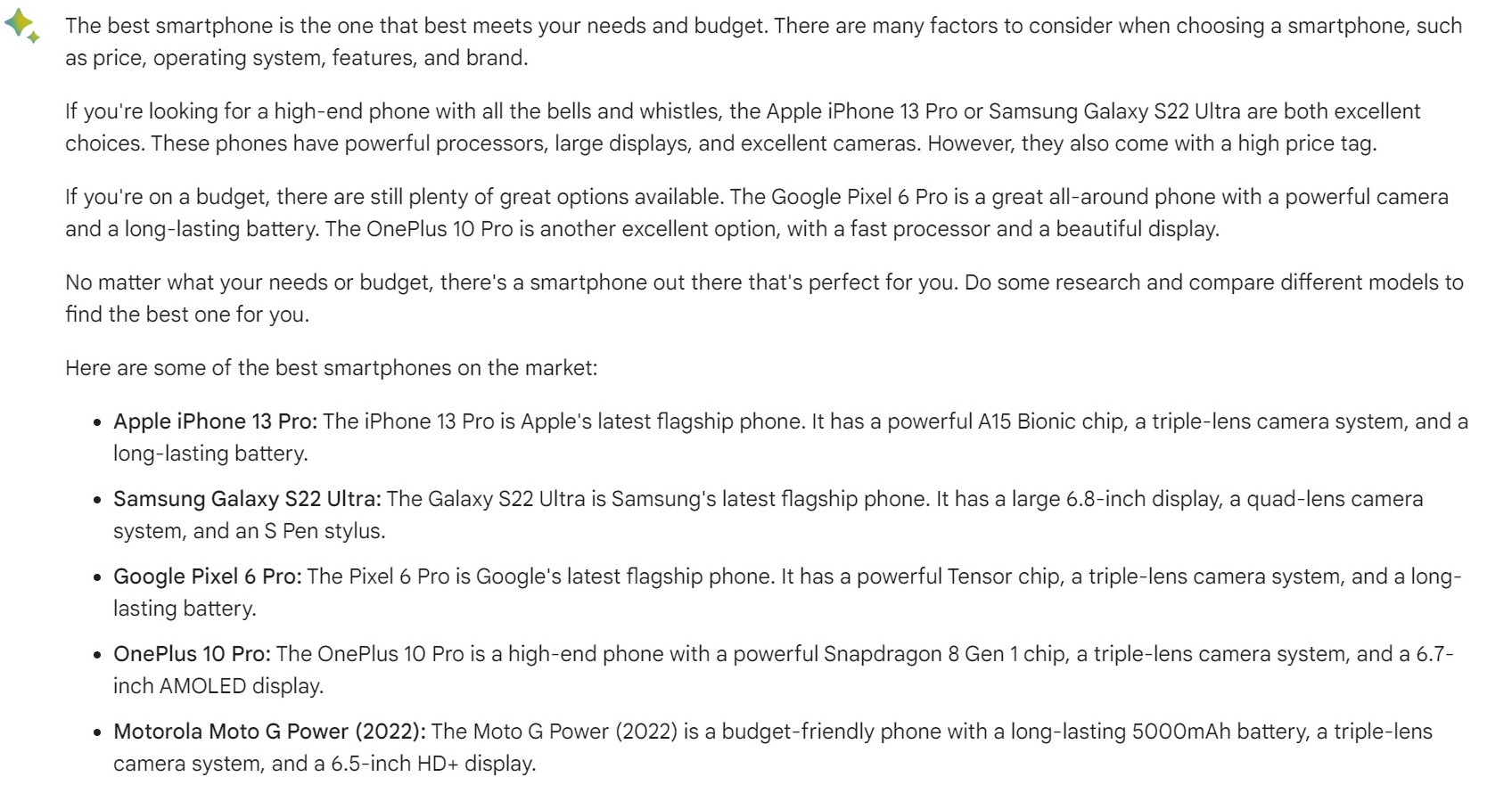
Google Bard also noted once again that there are a bunch of factors to consider when buying a smartphone, though it took a more proactive role in suggesting flagship models than it did previously. Unfortunately, Bard suggested the same old models and referred to them as recent flagship releases. That is not a particularly good look for Google’s AI, especially when one of those recommendations is from Google’s Pixel range.
Question: Which is better, Android or iPhone?
Here things get a little different. Once again Bing keeps its answers short and simple, championing some of the relative strengths of iPhone and Android ecosystems without going into a huge amount of detail. Instead it falls back to asking what you want in a smartphone, so it can narrow down its recommendations. Which, frankly, is not particularly helpful.

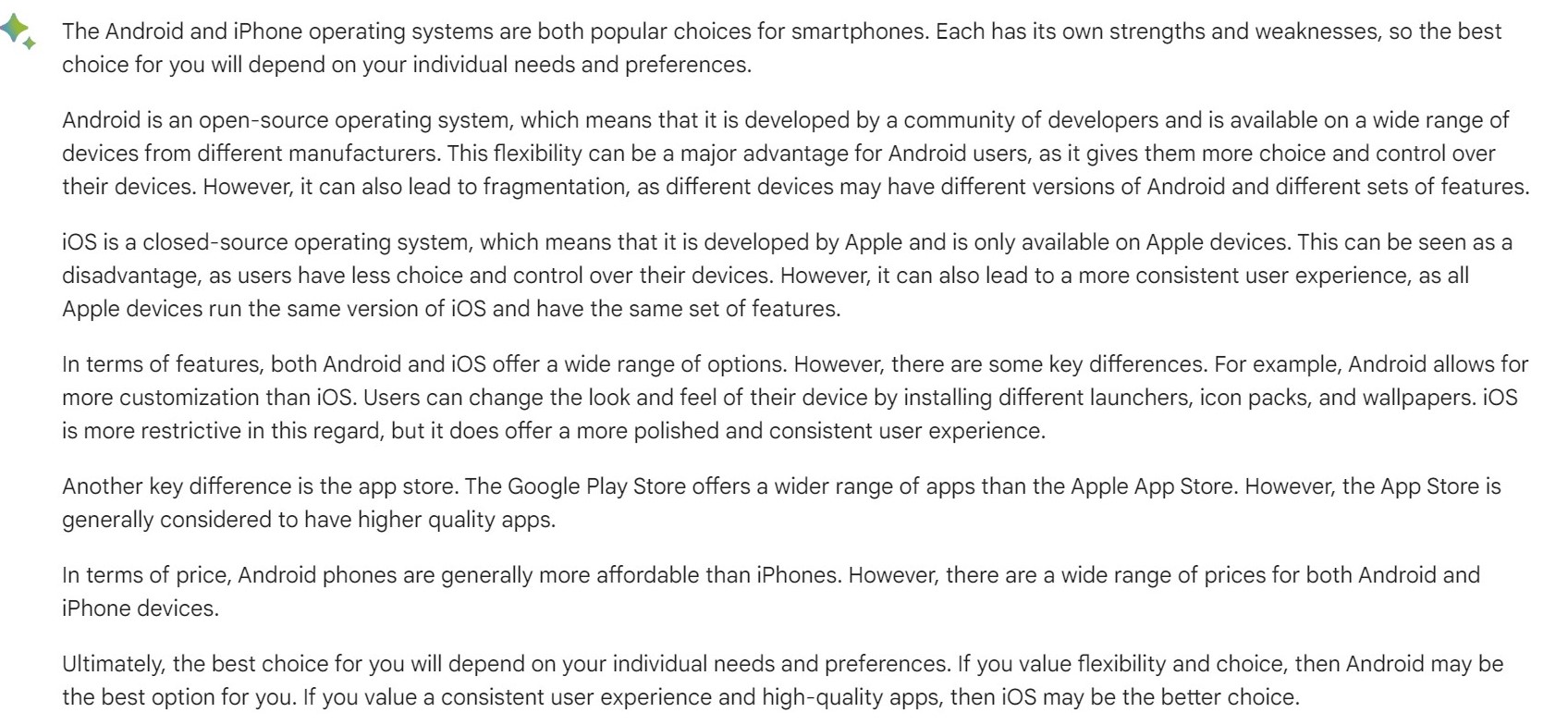
Google Bard goes into much greater detail about the differences between Android and iOS — particularly in terms of the closed vs open ecosystems. Unlike its phone recommendations, this information doesn’t seem to be out of date, though it remains remarkably non-committal.
Considering Google owns the Android platform, it could have been another opportunity to plug its own products. Not that refusing to take sides is a bad thing, and I appreciate the AI chatbot helping people get the right phone for their own needs.
Question: Should I buy iPhone or Android?
When faced with the question of whether I should buy an iPhone or Android phone, Bing offered a similar non-committal response. It noted a few key differences between iPhones and Android devices, but once more asked for more information to better personalize its recommendations.
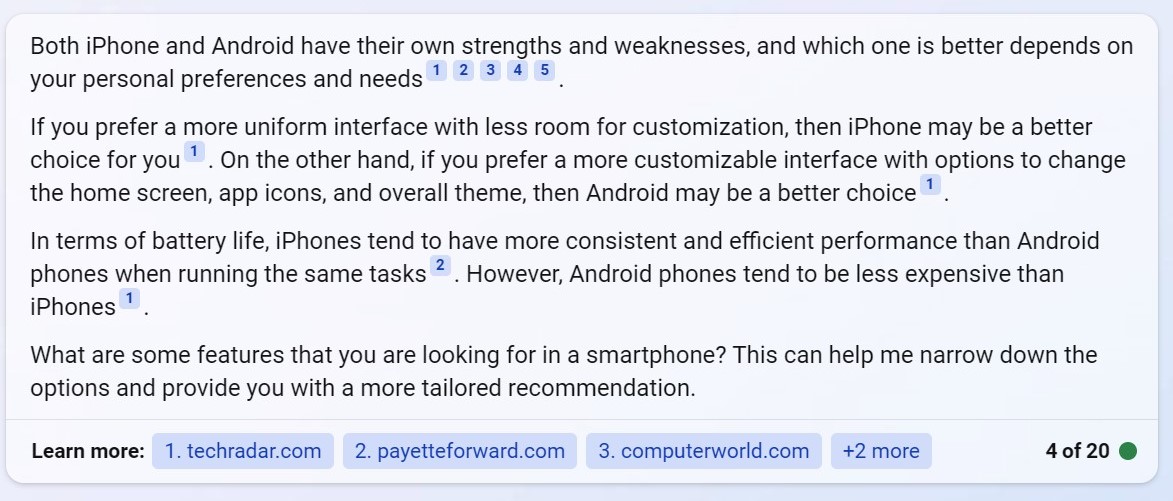
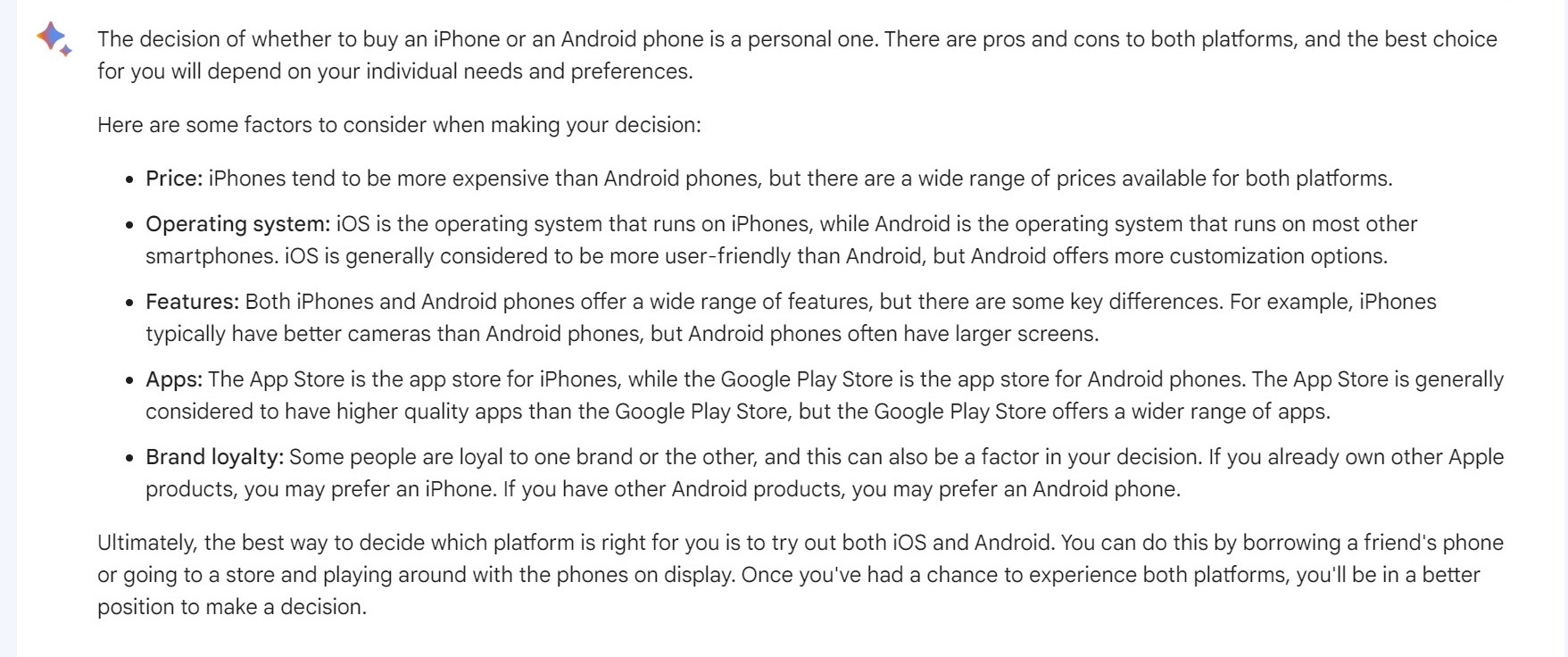
Bard offered a bit more reading material, but prioritized the different factors that would affect your decision between the two. Like the fact iPhones tend to be more expensive, but typically have better cameras and availability of apps. But it remained just as non-committal as Bing, and previous questions posed to it.
So as unhelpful as both AIs might be for anyone hoping to get a definitive answer, Bard does seem to be offering more resources to help you make your own decision in this instance. And at least its information is accurate.
Bottom line
When it comes to choosing a smartphone for you, neither Bing or Bard is particularly helpful when it comes to making an absolute decision right off the bat. Both services seem keen to help you figure that out on your own, but seem to do so in very different ways. Bing primarily asks you to provide follow-up information, while Bard seems more eager to immediately inform you about the various factors that might affect your decision.
Then again, by being a little less eager to provide you with information straight away, Bing managed to not provide us with any out-dated information. Google Bard did on two occasions, seemingly forgetting what year it is and which flagship phones have actually been released. Which is a pretty poor look for Google’s AI, despite the disclaimers warning users about the possibility of receiving incorrect information.
Sadly, as advanced as AI has become, it isn’t capable of offering solid buying advice yet. All chatbots can do is point you in the right direction.







